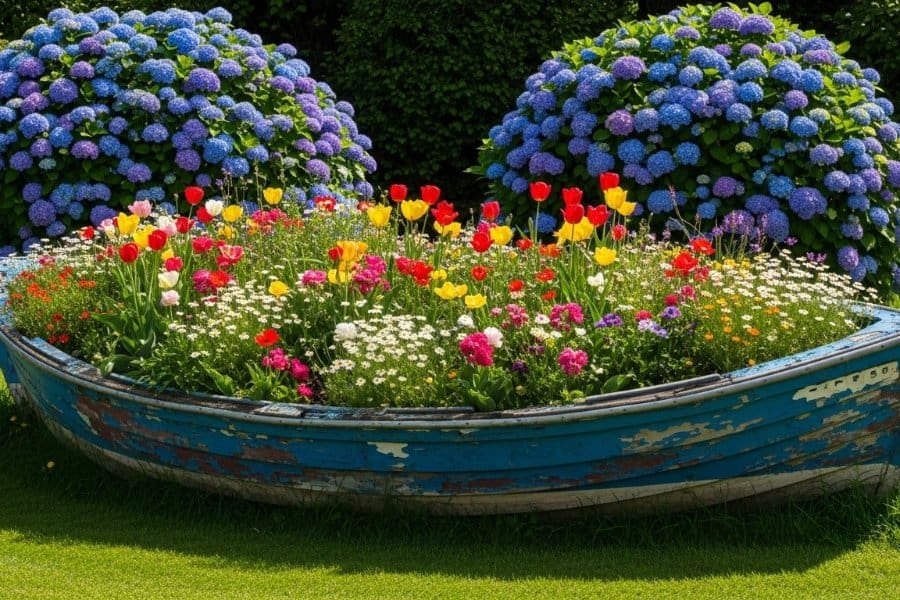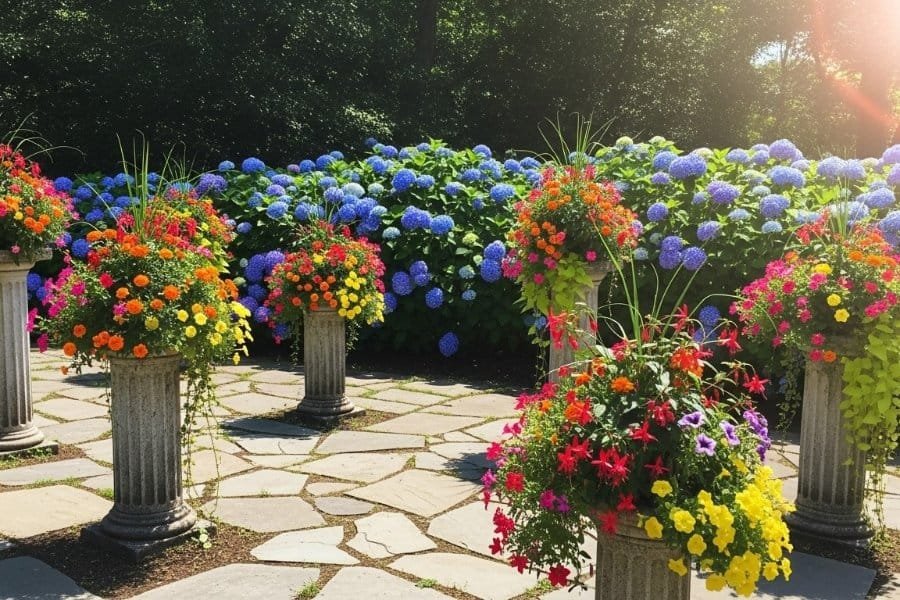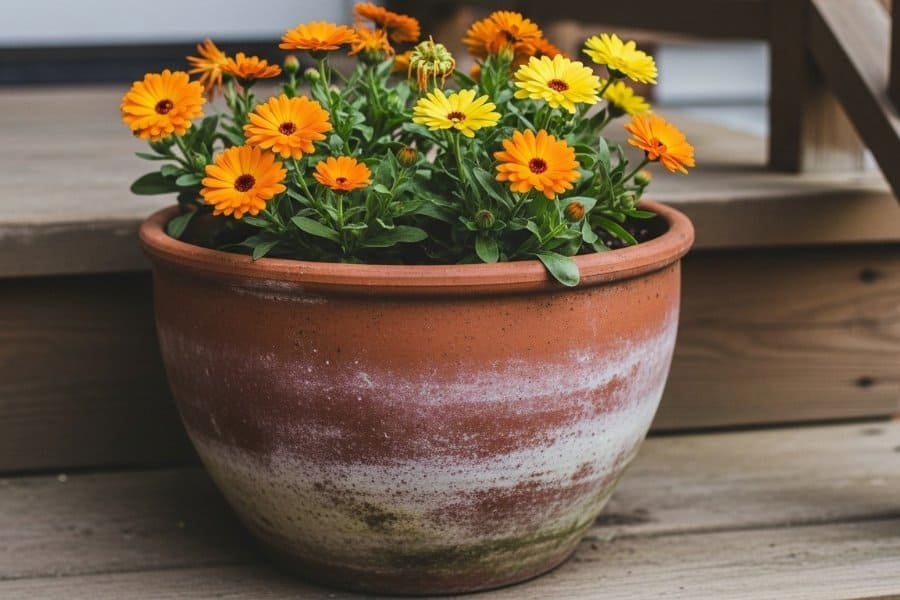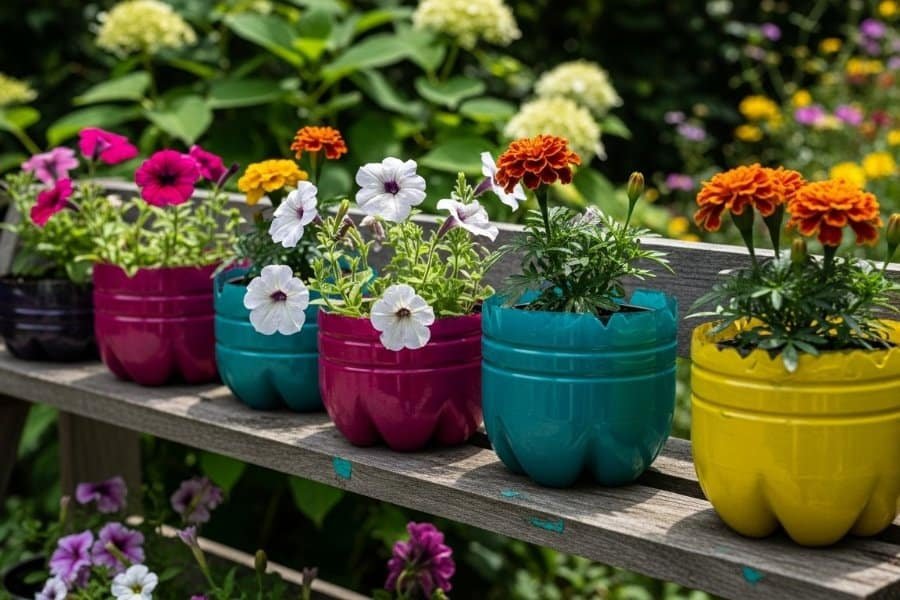Lemon cucumbers are round, sweet, and so refreshing! If you enjoy gardening like me, watching them grow from tiny seeds into crisp yellow fruits is such a joy.
In this post, I’ll walk you through how I grow lemon cucumbers step by step—from sowing to harvest. This timeline is based on my real experience, so you’ll see exactly what happens on each key day.
Let’s start!
Contents
Start Lemon Cucumbers from Seed Indoors
Growing cucumbers from seed feels so satisfying, especially when you see those first sprouts pop up. I always begin with a small tray setup.
Choosing Materials and Preparing the Tray
I use a 6-cell tray, each cell around 3 inches wide. Then, I fill it up with sifted compost. Sifting helps create a soft and fluffy soil mix that seeds love.
I carefully level the compost in each cell so the seeds sit evenly.

For this batch, I use lemon cucumber seeds. This variety grows well even in moderate climates. It can handle around 60°F without much stress and doesn’t need intense heat to ripen, so the fruit stays sweet and less bitter.

Sowing the Seeds
I plant one seed in each cell. I use my finger to poke a small hole in the compost, then drop the seed in.

After that, I cover it completely with soil.

The perfect temperature for sprouting is around 77°F. Once the seeds are planted, I water them gently and keep the tray in a warm, sunny spot.

Watch the Seedlings Grow
Seeing progress is so exciting! Each stage shows you that things are going right.
Day 11: Seedlings Emerge
On day 11, I see the first sprouts break through the soil. Tiny but strong! It always feels like magic.

Day 21: First True Leaves
By day 21, the first true leaves start to show. These aren’t the seed leaves—they’re the real deal! The plant begins to grow faster now.

Day 30: Time to Transplant
At day 30, the leaves are much larger. The plant is thriving, and it’s ready for a bigger home.

Transplanting into a Bigger Container
This is the moment when I give my cucumbers room to stretch their roots.
Preparing the Growbag
I use a 39L growbag and fill it with compost mixed with a bit of wood ash. Wood ash adds potassium, which is great for fruiting plants.

Moving the Seedlings
I carefully remove the plant from the small tray.

Then I dig a hole in the growbag and place the root ball inside.

I pour water directly into the hole to keep the roots moist, then fill it in with more compost.

To finish, I add a layer of spruce shavings on top. This mulch keeps the soil cool and helps hold moisture.

Then, I water again around the base.

Let the Sunlight and Growth Begin
Lemon cucumbers love sunlight. This part is all about helping the plant climb and bloom.
Sunlight Matters
Without full sun, the plant won’t flower well. Less sun means fewer fruits—so I always ensure my plant gets a sunny spot!

Day 36: Vines Start to Climb
By day 36, the plant starts sending out tendrils. These little arms grab onto anything nearby. I often add a small support to guide the vines.

Day 48: Flower Buds Show Up
On day 48, I start seeing flower buds.

Tiny yellow dots appear at the tips—this means the plant is getting ready to fruit!

Day 55: Full Bloom
The plant is covered in yellow flowers by day 55. Bees and other pollinators visit, helping the plant set fruit. It’s such a beautiful stage to watch.

Fruit Begins to Grow
Once the flowers bloom, it’s time to keep the soil moist and wait for the fruit!
Day 62: Baby Cucumbers Appear
Behind each flower, I start seeing small, pale green fruits forming.

By day 62, they’re about the size of a ping-pong ball!

Watering is Key
Now, I make sure to keep the soil consistently moist. If the soil dries out, the fruit won’t develop properly, or it might taste bitter. I water deeply and regularly.

Time for the First Harvest
This part always makes me smile! Harvesting feels like the reward for all the care I’ve given.
Day 71: First Fruits Are Ready
On day 71, I harvest my first lemon cucumbers!

They’ve turned a soft lemon-yellow color and are about the size of a tennis ball. I gently twist them off the vine.

These cucumbers are an heirloom variety. They’re not citrusy, despite the name! The taste is mild, sweet, and crisp, with no bitterness. They’re also burpless, so they’re gentle on the stomach.

I also like to grow another batch of lemon cucumbers on a trellis in my garden.
These vines grow 6–8 feet long when supported vertically. It saves space, and the fruits stay clean and easy to pick.

Day 77: Plants in Full Fruit
By day 77, the vines are full of lemon cucumbers!

The air circulation also keeps the plant healthy and reduces disease risk.

Keep Feeding for Ongoing Harvests
If your plant still looks healthy, you can keep picking more cucumbers!
Use Fertilizer Weekly
During the fruiting phase, I apply a diluted balanced fertilizer once a week. This keeps the plant strong and productive.
Day 87: More Fruits to Pick
On day 87, my lemon cucumber plants are still producing well.

As long as the weather stays warm and I continue to care for the plant, it keeps giving!

Final Thoughts
Lemon cucumbers are such a fun and rewarding crop to grow. Each stage brings something exciting to the garden, from sprouting seeds to harvesting crisp yellow fruits.
Why not plant a few in your next gardening season? Their sweet flavor, easy care, and unique shape make them a standout in any backyard garden!





